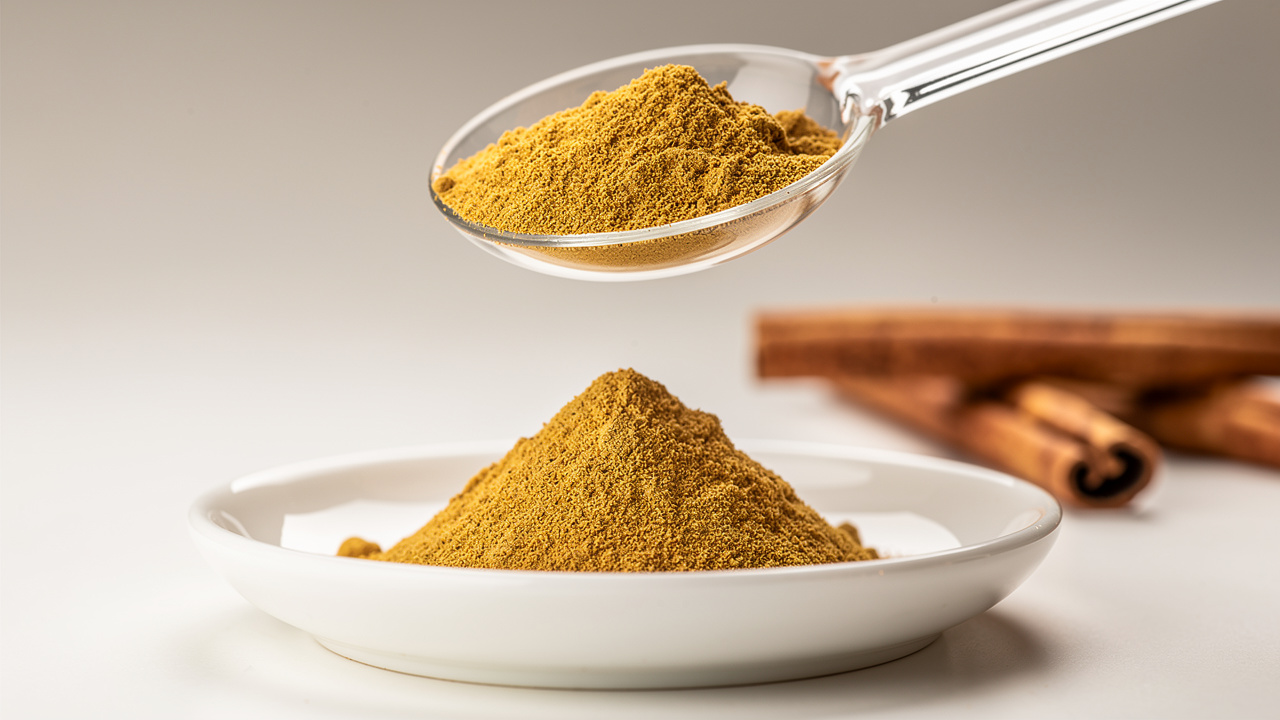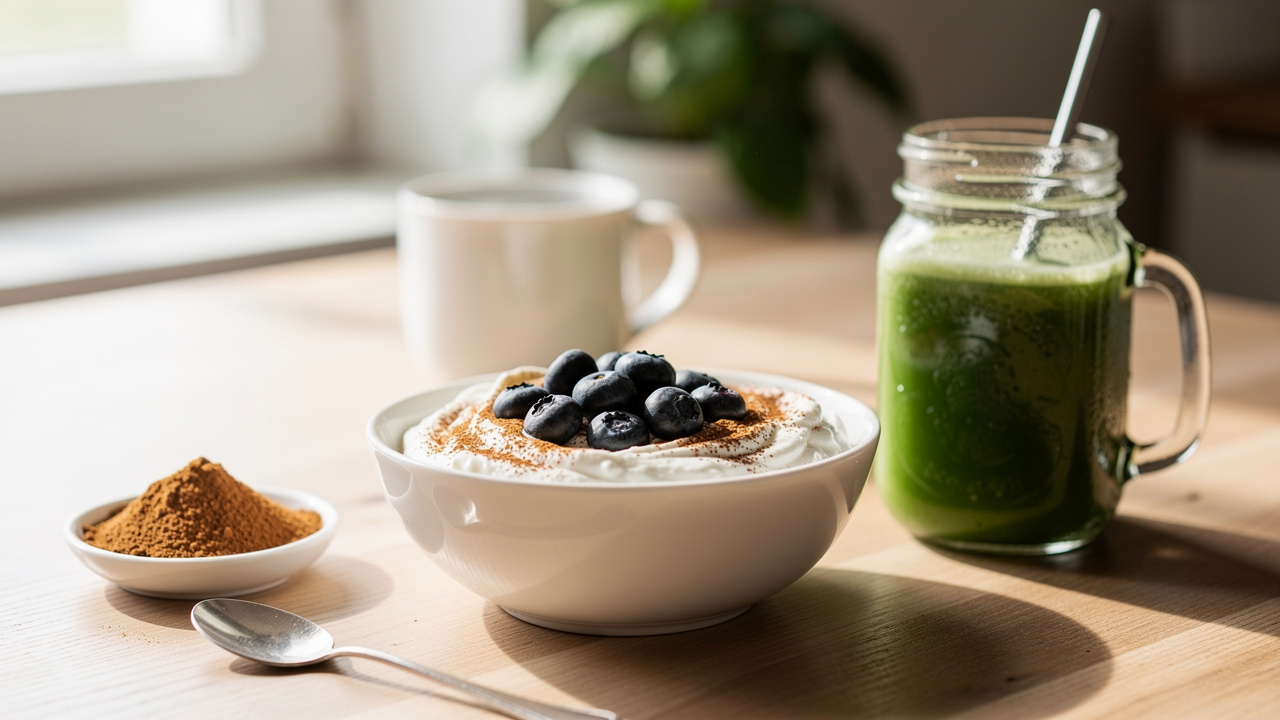Ceylon Cinnamon For Blood Sugar: Science, Strategy, And Realistic Expectations
If you’re experimenting with Ceylon cinnamon for blood sugar control, you’re in good company. Biohackers, longevity enthusiasts, and performance-focused professionals are increasingly turning to this “true cinnamon” as a low-friction way to smooth out glucose spikes, support insulin sensitivity, and keep energy more stable across the day.
At Synchronicity Health, we’re interested in what actually moves the needle. That means asking three core questions about Ceylon cinnamon for blood sugar:
-
How does it work biologically?
-
What do human studies really show?
-
How can you use it intelligently—especially if you’re stacking it with berberine, exercise, fasting, or NAD+ IV therapy?
This guide walks through the evidence, the benefits, the risks, and how to build Ceylon cinnamon for blood sugar into a broader metabolic strategy without getting pulled in by exaggerated claims.
“No supplement can compensate for a poor diet and sedentary lifestyle. Think of tools like cinnamon as support, not substitutes.”
Ceylon Cinnamon Vs. Cassia: Why The Type Matters

Most grocery store cinnamon is not Ceylon. Understanding the difference is essential if you plan to use Ceylon cinnamon for blood sugar consistently rather than only as a flavoring.
Ceylon Cinnamon (“True Cinnamon”)
-
Botanical name: Cinnamomum verum
-
Origin: Primarily Sri Lanka (around 80% of global supply)
-
Flavor: Light, slightly sweet, nuanced
-
Color: Tan to light brown
-
Key points for health:
-
Very low in coumarin, the plant compound that can damage the liver at high doses
-
Higher relative antioxidant content compared with typical Cassia cinnamon
-
Considered safer for daily or higher-dose supplementation
-
Cassia Cinnamon
-
Botanical sources: Cinnamomum cassia, C. burmannii (Korintje), C. loureiroi (Saigon/Vietnamese)
-
Flavor: Strong, spicy, more “bite”
-
Color: Darker, reddish-brown
-
Key points for health:
-
Many positive trials on cinnamon and blood sugar used Cassia
-
Contains far more coumarin than Ceylon
-
Regular high intake can exceed the tolerable daily intake for coumarin and place extra stress on the liver
-
A quick comparison:
|
Feature |
Ceylon Cinnamon |
Cassia Cinnamon |
|---|---|---|
|
Coumarin content |
Very low |
Much higher |
|
Best for |
Daily blood sugar support |
Short-term or culinary use in small amounts |
|
Typical flavor |
Mild, slightly sweet |
Strong, spicy, more intense |
Coumarin And Safety
European regulators set a tolerable daily intake (TDI) for coumarin at 0.1 mg per kilogram of body weight. For a 165 lb (75 kg) person, that’s about 7.5 mg/day. Just ½ teaspoon of Cassia can already be close to or above that level, depending on the batch.
With Ceylon cinnamon for blood sugar, coumarin is present only in trace amounts, so you can use gram-level doses from research without approaching that safety threshold. That alone makes Ceylon the smarter choice for long-term metabolic support.
How Ceylon Cinnamon Affects Blood Sugar

The appeal of Ceylon cinnamon for blood sugar is that it doesn’t act through a single pathway. Its polyphenols and other bioactive compounds hit several metabolic targets at once, which may be why some people see measurable shifts on CGM or fingerstick readings.
Insulin Mimicry And Signaling
Compounds in cinnamon can:
-
Activate insulin receptor kinase, “switching on” insulin receptors more effectively
-
Promote autophosphorylation of the insulin receptor, making cells more responsive to insulin
-
Encourage glucose uptake into muscle and fat cells even when insulin levels are not very high
In practice, using Ceylon cinnamon for blood sugar may help your body clear glucose from the bloodstream faster, especially if you’re insulin resistant, prediabetic, or managing type 2 diabetes under medical care.
Improving Insulin Sensitivity
Cinnamon contains procyanidin type-A polymers and related polyphenols that appear to support insulin signaling. Human trials, including work in people with PCOS and insulin resistance, show improved fasting insulin and insulin sensitivity with daily cinnamon supplementation.
For someone stacking Ceylon cinnamon for blood sugar with strength training, zone 2 cardio, or intermittent fasting, these effects may translate into:
-
Lower fasting glucose
-
Lower fasting insulin
-
Better post-meal glucose curves
Slowing Carbohydrate Digestion And Gastric Emptying
Cinnamon can:
-
Slow gastric emptying (food leaves the stomach more gradually)
-
Inhibit carbohydrate-digesting enzymes in the small intestine
That means carbohydrates break down and enter the bloodstream more slowly, blunting the post-meal spike. Many biohackers time Ceylon cinnamon for blood sugar with higher-carb meals for exactly this reason.
Antioxidant And Anti-Inflammatory Effects
Oxidative stress and chronic chronic low-grade inflammation both drive insulin resistance over time. Cinnamon is rich in polyphenols that:
-
Neutralize free radicals
-
Lower oxidative stress markers
-
Modestly reduce inflammatory signaling
Supporting redox balance and bringing down inflammation is one more way Ceylon cinnamon for blood sugar may protect metabolic health over the long haul.
What The Research Shows: Fasting, Post-Meal, And HbA1c
The data on Ceylon cinnamon for blood sugar is mixed but promising—especially when you look at specific endpoints rather than expecting a miracle supplement. Many of the classic studies use Cassia, yet the core mechanisms apply to Ceylon as well.
Fasting Blood Sugar
Systematic reviews and meta-analyses (2018–2019) report that:
-
In people with type 2 diabetes or prediabetes, cinnamon ingestion often leads to significant reductions in fasting blood glucose compared with placebo.
-
One review reported drops up to 52 mg/dL in some studies, usually with doses between 1–6 grams/day.
While many early trials used Cassia, there is no clear reason to think Ceylon cannot achieve similar effects when used in comparable doses. For individuals using Ceylon cinnamon for blood sugar, expect modest but meaningful fasting reductions, especially if your baseline control is poor.
Post-Meal (Postprandial) Blood Sugar
Here, evidence is stronger and more consistent:
-
Studies, including research on the Effect of cinnamon spice on continuously monitored glycemic response, show that 1–6 grams of cinnamon per day can significantly reduce post-meal glucose spikes over about 40 days.
-
Benefits appear in both normal-weight and obese volunteers.
Because gastric emptying and digestive enzyme inhibition are dose-responsive, timing Ceylon cinnamon for blood sugar around carb-heavy meals may be particularly effective for flattening CGM curves and reducing large glycemic swings.
HbA1c (Long-Term Control)
This is where expectations need to be calibrated:
-
Some trials in people with type 2 diabetes report HbA1c reductions of 0.27–0.83% after ~3 months of supplementation.
-
Other studies—especially in healthy individuals or those with well-controlled diabetes—find little or no HbA1c change.
WebMD and similar medical references categorize Ceylon cinnamon as “possibly ineffective” for well-controlled diabetes but “might somewhat help” those with poor control.
A practical way to read the data: cinnamon is a supportive tool for glycemic control, not a stand-alone treatment for diabetes.
Bottom line: Ceylon cinnamon for blood sugar seems more reliable for improving fasting and post-meal numbers than for dramatically shifting HbA1c on its own.
Dosing Ceylon Cinnamon For Blood Sugar: How Much, How Often, What Form?

If you’re going to use Ceylon cinnamon for blood sugar in a serious way, dose and form matter.
Typical Dose Range From Studies
Most human studies fall between:
-
1–6 grams of cinnamon powder per day
-
WebMD-style references note that 0.5–3 grams/day has been used safely for up to six months
Because Ceylon is low in coumarin, these ranges translate cleanly when you switch from Cassia to Ceylon cinnamon for blood sugar.
A practical approach:
-
Start with 1 gram/day (about ½ teaspoon of Ceylon powder or equivalent in capsules)
-
Gradually increase to 2–3 grams/day if tolerated and if your CGM/fingerstick data support the change
-
Many people split the dose with meals: breakfast + largest carb meal of the day
Consistent tracking helps. Pair your Ceylon cinnamon for blood sugar experiment with:
-
Fasting glucose checks a few times per week
-
Occasional post-meal readings (1–2 hours after eating)
-
Subjective notes on energy, focus, and cravings
Forms Of Ceylon Cinnamon
-
Powder (Kitchen-Grade Or Lab-Verified)
-
Easy to add to coffee, smoothies, yogurt, or oatmeal
-
Best if you can source Ceylon specifically and confirm it’s not a Cassia blend
-
-
Capsules/Tablets
-
More precise dosing
-
Helpful if you dislike the taste or want consistent Ceylon cinnamon for blood sugar intake before higher-carb meals
-
-
Standardized Extracts
-
May concentrate key polyphenols
-
Check labels for Ceylon source and third-party testing
-
Whatever form you choose, consistency matters. Ceylon cinnamon for blood sugar works over weeks to months, not in a single “rescue” dose.
Stacking Ceylon Cinnamon And Berberine
Pairing Ceylon cinnamon for blood sugar with berberine is popular among biohackers and longevity-focused clinicians. The combination targets overlapping but distinct pathways.
Why The Stack Makes Sense
Berberine has been shown to:
-
Activate AMPK, the same energy sensor targeted by metformin
-
Improve insulin sensitivity
-
Support glucose uptake and fatty acid oxidation
Together, berberine and Ceylon cinnamon for blood sugar may:
-
Lower fasting glucose more effectively than either alone
-
Improve post-meal responses via both insulin signaling and slowed carb absorption
-
Support lipid changes (lower triglycerides and LDL, steadier HDL)
How To Approach The Combo
-
Common berberine doses: 500–1500 mg/day, divided with meals
-
Layer Ceylon cinnamon for blood sugar at 1–3 grams/day alongside
-
Monitor:
-
Fasting glucose
-
Postprandial peaks (1–2 hours after meals)
-
Any signs of hypoglycemia (shakiness, sweating, dizziness)
-
If you’re also on prescription glucose-lowering drugs, this stack can push numbers lower than expected. Work with a clinician before combining berberine, Ceylon cinnamon for blood sugar, and medications so dosing can be adjusted safely if needed.
Practical Ways To Use Ceylon Cinnamon For Blood Sugar

Mechanisms and studies matter, but daily execution is where results show up. Here are simple ways busy professionals, athletes, and NAD+ clinic clients work Ceylon cinnamon for blood sugar into their routines.
With Breakfast Or First Meal
-
Add ½–1 teaspoon of Ceylon powder to:
-
Coffee with cream or MCT oil
-
Protein shakes or smoothies
-
Greek yogurt with berries
-
-
Take a Ceylon cinnamon for blood sugar capsule 15–20 minutes before a higher-carb breakfast (oats, toast, fruit-heavy meals)
You can also combine Ceylon cinnamon for blood sugar with protein and fat at breakfast to keep the first glucose rise of the day smoother, which often sets the tone for more stable numbers later.
Pre-Workout And Post-Workout
If you use carbs around training:
-
Pre-workout: A small dose of Ceylon cinnamon for blood sugar with a carb-containing pre-workout snack may improve how your muscles handle incoming glucose
-
Post-workout: Pair Ceylon cinnamon with your post-training carbs and protein to potentially favor glycogen storage and smoother glucose curves
For those monitoring performance, watch for:
-
Better energy stability during long sessions
-
Less “crash” after carb-heavy shakes or meals
-
Improved recovery when combined with adequate protein and sleep
With “Cheat” Or Refeed Meals
On days with:
-
Higher-carb dinners
-
Restaurant meals
-
Refeed days during cutting or long fasts
You can:
-
Take Ceylon cinnamon for blood sugar capsules 15–30 minutes before the meal
-
Or mix Ceylon into dessert-style snacks—like protein mug cakes, baked apples, or chia pudding
The goal is not to “cancel out” an uncontrolled meal but to soften glucose swings that would otherwise hammer energy, focus, and recovery.
Safety, Side Effects, And Who Should Be Careful
Even though Ceylon cinnamon for blood sugar is generally safer than Cassia, it’s still a bioactive compound, not a neutral spice at gram-level dosing.
Potential Side Effects
Most people tolerate Ceylon well, but at higher doses you may see:
-
Mild digestive upset (bloating, discomfort)
-
Mouth or throat irritation if taken as dry powder
-
Rare allergic reactions (rash, itching, breathing issues)
If any of these appear, reduce the dose or stop and discuss with a clinician.
Medication Interactions
Because Ceylon cinnamon for blood sugar can lower glucose and mildly reduce blood pressure, use caution if you take:
-
Insulin or oral diabetes medications
-
GLP-1 agonists
-
Blood pressure-lowering drugs
-
Anticoagulants or antiplatelet drugs
Combining these with gram-level Ceylon cinnamon for blood sugar can increase the risk of hypoglycemia or hypotension. Medical supervision and closer monitoring are strongly recommended.
Special Populations
-
Pregnancy and breastfeeding: Food-level use is fine for most, but medicinal doses of cinnamon (including Ceylon) lack strong safety data. Stick to culinary amounts unless your clinician explicitly approves more.
-
Liver disease: Ceylon is low in coumarin, but if you already have liver issues, talk with your hepatologist or primary care provider first.
-
Surgery: Since cinnamon can influence blood sugar and blood pressure, most surgeons prefer you stop supplements—including Ceylon cinnamon for blood sugar—around two weeks before an operation.
Where Ceylon Cinnamon Fits In A Bigger Metabolic Strategy
For high-performing professionals, endurance athletes, and NAD+ IV therapy clients, Ceylon cinnamon for blood sugar is best viewed as a supporting player in a larger system, not a solo act.
It pairs well with:
-
Diet: High-protein, fiber-rich meals, smart carb timing, and controlled evening carbs
-
Exercise: Resistance training, zone 2 cardio, and occasional HIIT sessions
-
Recovery: Adequate sleep, stress management, and—where appropriate—adjuncts like NAD+ infusions or mitochondrial-focused protocols
-
Supplements (as appropriate): Berberine, magnesium, omega-3s, and in some cases metformin under physician guidance
When you combine these with Ceylon cinnamon for blood sugar, you’re stacking multiple modest effects on:
-
Insulin sensitivity
-
Post-meal glucose control
-
Inflammation and oxidative stress
-
Cardiovascular markers like triglycerides and blood pressure
Think of your metabolic health like a training program: small, consistent inputs in multiple areas tend to beat one dramatic intervention.
That multifactor approach is far more powerful than hoping any one supplement will “fix” metabolic issues on its own.
Key Takeaways
-
Ceylon cinnamon for blood sugar is safer than Cassia for regular or higher-dose use due to its very low coumarin content.
-
Mechanistically, Ceylon cinnamon for blood sugar supports insulin signaling, slows carb digestion, and adds antioxidant and anti-inflammatory support.
-
Human trials show the strongest benefits for fasting and post-meal glucose, with more modest and inconsistent effects on HbA1c.
-
Effective doses of Ceylon cinnamon for blood sugar typically range from 1–3 grams/day, often split with meals and used consistently for weeks to months.
-
Stacking Ceylon cinnamon for blood sugar with berberine, smart nutrition, and training can create meaningful metabolic improvements, but medical supervision is important if you’re on glucose- or blood pressure-lowering drugs.
-
Treat Ceylon cinnamon for blood sugar as a complementary tool—evidence-based, low-friction, and performance-friendly—but never as a replacement for medical care or lifestyle fundamentals.




Leave a comment
All comments are moderated before being published.
This site is protected by hCaptcha and the hCaptcha Privacy Policy and Terms of Service apply.